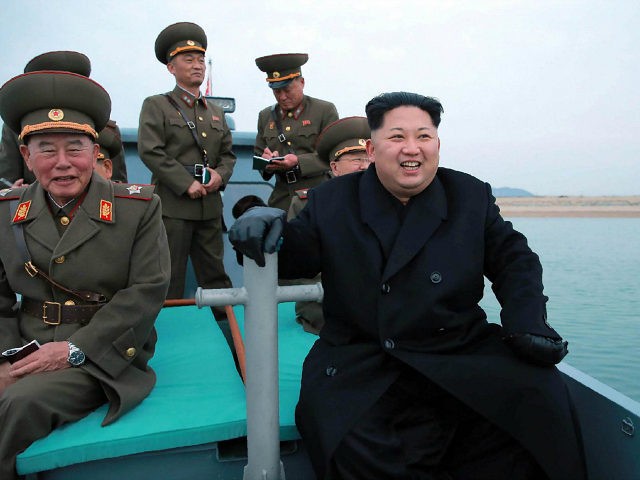North Korea has finally commented on America’s election of Donald Trump as its next president, insisting that Pyongyang has no plans to change its policies based on the new head of state.
“We do not care about whoever becomes the president of the United States,” Kim Yong Ho, director of human rights and humanitarian issues, said earlier this week. “The fundamental issue here is whether or not the United States has the political will to withdraw its hostile policy toward the DPRK (North Korea).”
Pyongyang has, for decades, insisted that the United States engages in “hostile” behavior towards North Korea by encouraging international sanctions and condemning the flagrant human rights abuses that have led North Korean refugees to compare the Kim Jong-un regime to the Holocaust.
Kim Yong Ho spoke to reporters at the UN General Assembly, condemning that body’s decision to yet again issue a resolution against the communist state’s “widespread and gross violations of human rights.”
North Korea’s state media arms — the only media in the country — has also remained largely silent on Trump’s ascent. The BBC found one mention of the new president in the Korean Central News Agency (KCNA)’s coverage, and it had little to do with the United States:
Hidden deep down in a commentary calling for the resignation of embattled South Korean President Park Geun-hye, state news agency KCNA refers to her ruling Saenuri Party making use of a “Trump emergency system” to divert the public’s attention away from the current cronyism scandal threatening Ms Park’s leadership.
The report does not explain who Trump is to its readers — who have no access to international news and, thus, are unlikely to have followed the U.S. presidential race — though it does later claim Park was making a “bid to use even the US presidential election as an emergency measure” to distract from her own political problems.
“Mr Trump is mentioned entirely without context, with no explanation to readers who or what ‘Trump’ might be, and Korea-watchers will have to go back to June this year to find his last meaningful mention by Pyongyang,” the BBC notes.
Park Geun-hye is facing mounting demands for her resignation following the revelation that she had shared classified state information with a longtime friend, Choi Soon-sil, who has no ties to Seoul or security clearance. South Koreans appear particularly incensed at Park’s ties to the cult run by Choi’s father, with protests stirred by rumors that Park engaged in seances and exorcisms at the presidential palace.
As Park has governed as one of the most aggressively anti-communist leaders in modern South Korean history since her father, Park Chung-hee, North Korea has embraced the Choi scandal, producing countless articles predicting her demise.
Park’s administration has reached out to President-elect Trump. “I would like to congratulate Trump on his election, and hope this will be an opportunity for the development of the ties between South Korea and the United States,” South Korean Prime Minister Hwang Kyo-ahn said in a statement last week.
Trump’s official policy on the Koreas remains to be seen, though he has hinted as a candidate that he is entering the discussion with an open mind. “I would speak to him, I would have no problem speaking to him,” Trump said in May when asked if he could envision a situation in which he would speak personally with dictator Kim Jong-un.
Trump has said he is seeking to impose further sanctions not just on North Korea, but on its main business partner, China, to discourage Beijing from working with the Kim regime. “You have to do something about North Korea. Now what I would do is, I would make China respect us because China has extreme control over North Korea,” Trump said in September 2015. “And I would say, ‘China, you better go in there and you better do something because economically it could cost China.'”
On Wednesday, Trump transition team adviser and former Heritage Foundation President Ed Feulner reportedly suggested that a “secondary boycott” on Chinese firms friendly with the Kim regime is on the table for President-elect Trump.

COMMENTS
Please let us know if you're having issues with commenting.